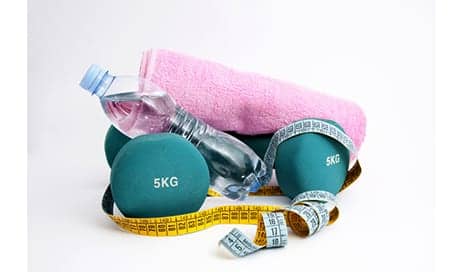For breast and prostate cancer patients, participating in aerobic and resistance exercise, both during and after treatment, may help prevent or delay many of the physical and mental effects that patients experience, according to researchers.
Via two studies presented recently at the American Institute for Cancer Research (AICR) Research Conference, investigators share what they have discovered.
In the breast cancer study, published in the Journal of Community and Supportive Oncology, study author Brian Focht, PhD, director of the Exercise and Behavioral Medicine Lab at The Ohio State University Comprehensive Cancer Center, and colleagues reviewed 17 randomized controlled trials (RCTs) related to exercise interventions among women undergoing chemotherapy or radiation.
Trial interventions ranged from 3 to 6 months, both supervised and home based. The study found that, on average, breast cancer patients who were exercising experienced improvements in muscular strength, cardiovascular functioning and quality of life compared to the non-exercising patients, the release explains.
“Given the incredible amount of variety from study to study, women were able to safely exercise during treatment. On top of that, it produced meaningful improvements in terms of quality of life and fitness outcomes,” Focht states.
The prostate cancer study, published in Medicine & Science in Sports & Exercise, was a pilot RCT involving 32 men undergoing hormone therapy, called androgen deprivation therapy (ADT). Side effects of ADT include loss of muscle, increase in fat mass, osteoporosis, and an increased risk for diabetes and heart disease.
Half of the men in the study were randomly assigned to a plant-based diet and a strength training and aerobic exercise group. The other half received standard care. At the start of the study, then at 8 weeks and 12 weeks, researchers measured the patients’ body composition, mobility and strength, the release continues.
“At the end of 3 months, there was an astonishing level of improvement among the intervention group. Functional ability increased dramatically and along with that, their quality of life—their satisfaction—also increased,” Focht says.
In addition, a timed walk test of about a quarter of a mile (400 meters) showed the men who were eating healthier and exercising were walking three to four times more quickly than the group receiving standard care. As well, those in the lifestyle intervention lost 4.4 pounds (2 kilograms) and 1% of body fat after 3 months; the standard care group gained almost 1% of body fat.
“The cancer experience—from diagnosis through treatment—has persistent effects that can last for years,” Focht shares. “As more and more people are successfully getting through cancer treatments, survivors are experiencing significant effects that meaningfully compromise their physical function and quality of life, along with heightening their risk of obesity and other chronic diseases.”
“What we are seeing in our studies is there are clear benefits to cancer patients implementing an exercise program as soon as possible,” he concludes.
[Source: American Institute for Cancer Research]






I found that i lost my sense of hearing a few years ago, i miss it so much